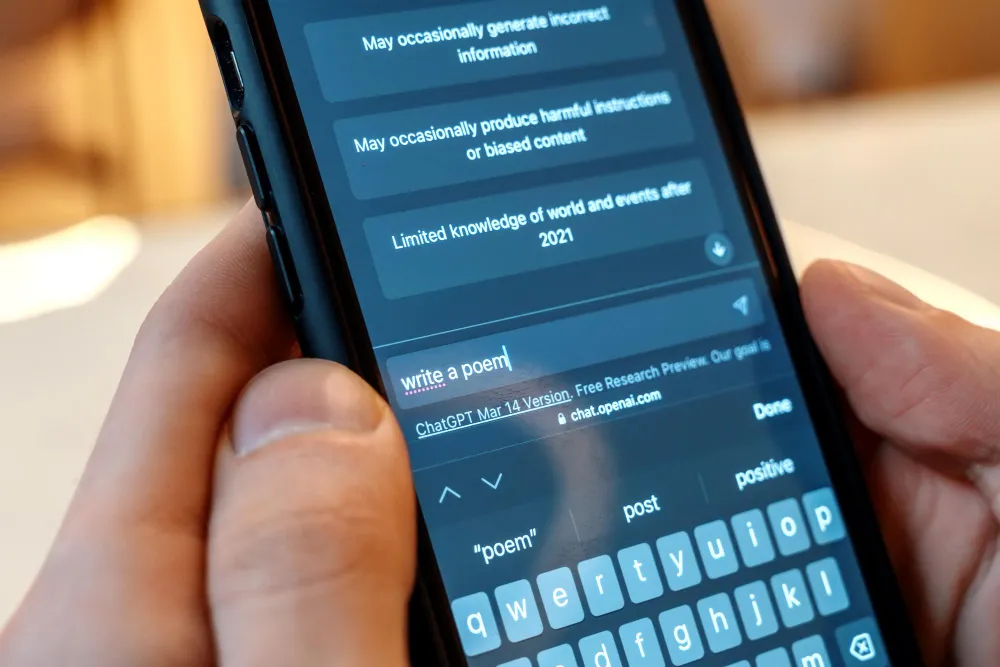Providing support the moment a customer asks for it is now a basic requirement for stores of any size. AI makes that level of speed and responsiveness possible — even for solo business owners.
AI chatbots handle repetitive conversations, maintain quality standards, and stay active late into the night without taking breaks. WhatsApp queues shrink, and your average order value goes up.
This efficiency comes from language models that evolve with every new interaction.
In this guide, you’ll see — step by step — how the technology works and why it fits so well into the daily routine of people selling clothes, electronics, or food in their own communities.
If you've ever lost a customer because you took too long to reply on WhatsApp, an AI chatbot can change your workflow starting today.
Simplify your routine: add products, track sales, and monitor your cash flow in real time. Create your free Kyte account and start testing it today.
Get started nowGet started
What Is an AI Chatbot for Customer Support?
An AI chatbot is a software tool that chats with customers in real time — via text or voice — on platforms like WhatsApp, Instagram Direct, or even your own website.
It understands natural language, picks up on the customer’s intent, and gives accurate responses in seconds.
Unlike rigid menu systems, this type of bot uses AI models that learn from past conversations and improve over time — delivering personalized answers, checking inventory, generating invoices, or completing orders without human help.
- Natural Language Processing (NLP): analyzes words, context, and tone to truly understand the customer’s need.
- AI-Powered Decision Engine: cross-checks CRM data, order history, and store policies to choose the right action.
- Instant integration with sales systems: sends order updates, checks stock, and logs new contacts in seconds.
- Continuous learning: every chat trains the system, improving its responses and reducing errors fast.
Why Use AI Chatbots for Customer Support?
If you run every part of your store yourself, time is always tight — and every second saved makes a difference in your cash flow and daily operations.
AI chatbots offer a practical solution: now, questions about payment methods, delivery times, or product details can be handled automatically, freeing you up to focus on sales, check inventory, or negotiate with suppliers.
Another big plus: all interaction history is saved and accessible, making it easy to track support cases and identify the most common issues.
That helps you fine-tune your promotions, understand what triggers the most questions, and anticipate your customers’ needs.
This intelligence also keeps your support aligned with the fast pace of social media and marketplaces, since the chatbot connects across channels while maintaining consistent quality.
In your day-to-day, this means less repetitive work and more consistency — your customers experience professionalism in every response, no matter how busy or late it is.
Chatbots are just one part of the solution — check out our complete AI guide for small businesses to learn how to apply artificial intelligence across your entire operation.

Features That Elevate Your Support
Here’s how AI technology helps small businesses deliver better customer service while saving time.
Key Features of AI Chatbots
In addition to answering common questions, AI chatbots can spot upselling and cross-selling opportunities in real time, suggesting add-ons or promotions based on the customer's profile.
During busy periods, the system automatically distributes requests, preventing bottlenecks and reducing the risk of missed messages.
This keeps customer service running smoothly, even on high-traffic days or during sales campaigns.
Another powerful feature is tracking customer preferences and buying patterns:
- the chatbot recognizes returning customers,
- anticipates what they might need,
- and offers personalized promotions based on previous interactions.
This creates a more personalized and engaging experience, helping you wow your customers and increase loyalty.
The setup is designed with small business owners in mind: automatic integration with payment systems, real-time catalog updates, and detailed reports let you tweak your strategy without relying on constant tech support.
You get a clear view of which products are top sellers and where service bottlenecks are, so you can make smart, quick decisions that help you grow with confidence.
Direct Benefits of AI Chatbots for Small Business Customer Support
Competitive and Economic Advantages
In the world of small retail, standing out isn’t just about low prices or product variety — it’s about creating a memorable experience for your customers.
AI chatbots can identify cross-selling opportunities during conversations, suggesting complementary items, bundles, or personalized deals based on each customer’s profile.
This level of personalization, done automatically, boosts your average ticket without requiring extra campaigns or additional effort from the store owner.
Instead of spending time answering the same questions over and over, why not let AI handle the repetitive stuff so you can focus on making more sales?
The benefits go far beyond customer service: business owners also gain access to detailed reports on customer behavior patterns, message peak times, and the most mentioned products in chats.
With this data, it’s easier to adjust your product mix, test promotions during high-traffic hours, or restock in advance for special dates — real decisions based on facts, not guesswork.
During busy seasons like Black Friday or Christmas, the chatbot keeps your store running efficiently without surprise costs for overtime or last-minute hires.
Small businesses have reported real growth in sales volume during these periods, with automation handling the load so owners can focus on deals, partnerships, or VIP service for top customers.
This creates a virtuous cycle: leaner operations, fewer surprises, and more space to focus on growing your business.
How to Implement an AI Chatbot in Your Business
Practical Steps to Get Started
Start by mapping where your customers most often start conversations — whether it’s Instagram DMs, WhatsApp groups in your area, or contact forms on your website.
Figure out how most orders come in, what questions people usually ask, and what times are the busiest.
This initial diagnosis helps you design a smarter support flow, one that can handle peak demand without sacrificing quality.
Next, choose a platform that lets you customize the chatbot with your store’s specific info and processes.
Look for solutions that easily connect to your online catalog, purchase history, and your preferred payment methods.
Test the bot using real-life customer scenarios from your shop — this helps fine-tune the flow and adjust the bot’s tone to better match your audience.
Feed the system up-to-date details on promotions, return policies, and stock updates so it can reply accurately and keep your customers well informed.
Take advantage of built-in reports and insights to run campaigns during peak times, test different replies for customer segments, and spot service bottlenecks early on.
Once connected to your sales system, the chatbot can start suggesting products based on buying behavior, logging every interaction, and building a smoother, more personalized customer journey from start to finish.
AI chatbots are just one piece of the puzzle — check out our full guide to AI for small businesses and see how to apply artificial intelligence across your entire operation.
Action and Ongoing Improvement
Monitor your chatbot’s performance metrics regularly, including average response time, resolution rate without human intervention, and how often customers come back.
With that data in hand, optimize your workflows to remove unnecessary steps and implement improvements based on what’s actually happening.
Small tweaks — like creating shortcuts for common questions or customizing greetings for holidays — help keep support dynamic and aligned with your customers’ reality.
Over time, consider expanding the chatbot to other parts of your business, like logistics support or automatic order status updates at every delivery stage.
Features like payment confirmations, abandoned cart reminders, and quick satisfaction surveys can enhance the customer experience without overwhelming your team.

Conclusion
Look for inspiration in other small business success stories and stay up to date with the latest AI features designed for retail.
Joining online communities, attending industry events, and joining discussion groups can give you access to creative solutions and help you stay ahead of trends in automated customer service.
Making this a habit helps you anticipate market shifts and position your business as a leader in the digital customer experience.
See how AI-powered chatbots can transform your customer service —and give you more time to focus on what really matters?
Every step you take in this direction brings you closer to your customer and makes your daily routine simpler. If you're ready to take the leap, create your free Kyte account now and download the app.
👉 Frequently Asked Questions (FAQ)
1) How can an AI chatbot help my store?
It automatically answers common questions, checks inventory, sends invoices, suggests products, and keeps your support running 24/7 — so you can focus on sales and managing your business.
2) Does a chatbot completely replace human support?
No. The chatbot handles repetitive, simple tasks, but human interaction is still essential for complex deals or when customers want empathy and personalized service.
3) Is it expensive to implement a chatbot in a small business?
Not necessarily. There are free versions and affordable plans. Many platforms let you start with basic features — like WhatsApp automation — and expand as your business grows.
4) What channels can I use an AI chatbot on?
They work on WhatsApp, Instagram Direct, Messenger, websites, and even marketplaces — keeping your customer experience consistent across all touchpoints.
5) Do chatbots help increase sales?
Yes. In addition to answering questions, they suggest related products, send personalized promotions, and remind customers about abandoned carts — helping raise your average order value.
6) How do I measure if my chatbot is working?
Track key metrics like average response time, resolution rate without human help, recovered sales volume, and customer satisfaction after each interaction.








